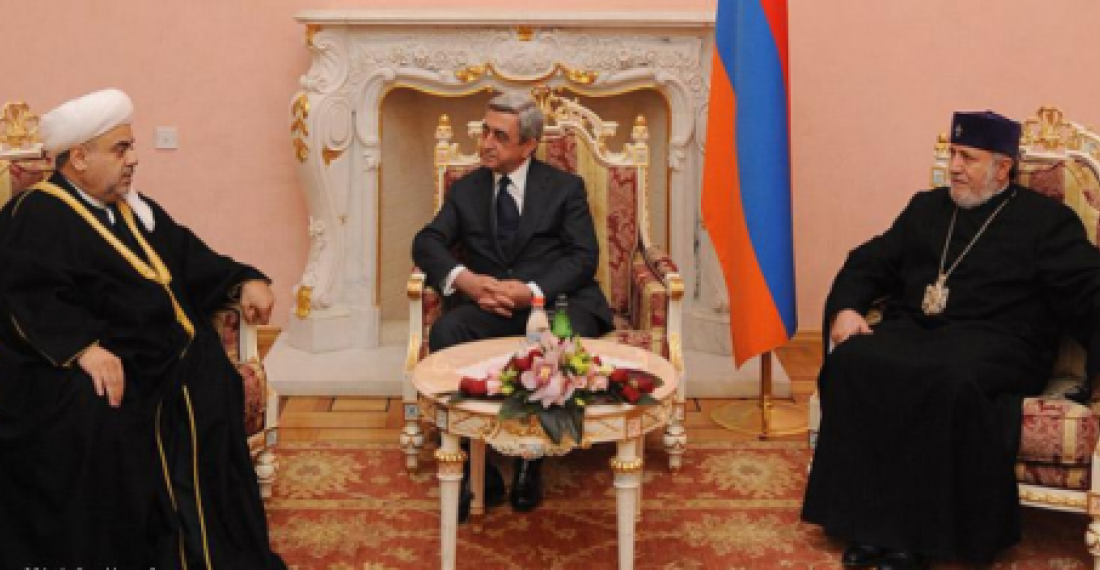Sheikh-Ul-Islam, Head of Administration of Muslims of the Caucasus Allashukyur Pashazade and Catholicos of All Armenians Garegin II have issued a joint call for the withdrawal of snipers on the line of contact separating Armenian and Azerbaijani forces in the Nagorno-Karabakh conflict zone.
The call came at the end of a meeting of CIS religious leaders held in the Armenian capital Yerevan.
The two leaders later met the president of Armenia, Serze Sargsyan who welcomed their efforts aimed at the settlement of the conflict through a dialogue.
source:commonspace.eu
photo: Allashukyur Pashazade and Garegin II with President Sargsyan in Yerevan on 28 November 2011 (picture courtesy of the Press Office of the president of Armenia)
Sheikhulislam and Armenian Catholicos join call for withdrawal of snipers on Karabakh line of contact
Sheikhulislam and Armenian Catholicos join call for withdrawal of snipers on Karabakh line of contact







